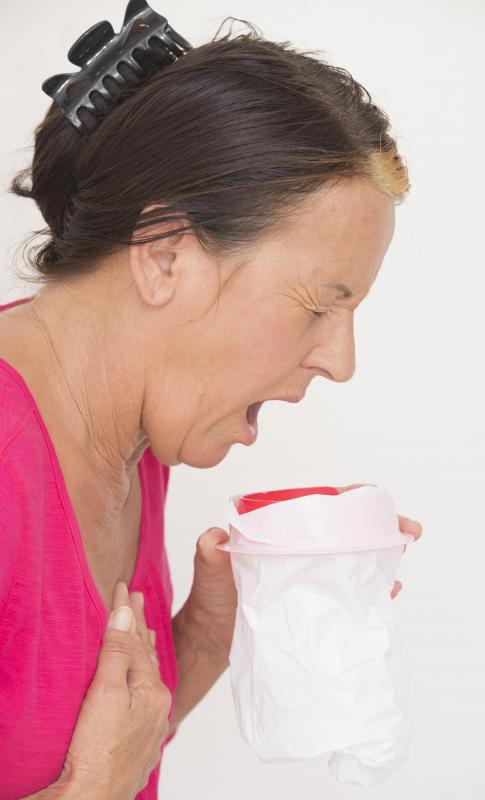At WiseGEEK, we're committed to delivering accurate, trustworthy information. Our expert-authored content is rigorously fact-checked and sourced from credible authorities. Discover how we uphold the highest standards in providing you with reliable knowledge.
What Does a Chemotherapist Do?
A chemotherapist is a person who specializes in the study and administration of chemotherapy, which is a process of eradicating cancer cells by destroying a significant amount of cells that divide quickly in the body. The process often involves the use of radiation, which can be exceptionally dangerous to patients and to the chemotherapist, so this professional must have a sufficient amount of education and training as it pertains to this medical process. This professional usually holds a master's degree or even a PhD, in addition to specific licensing or certification in chemotherapy practices.
Part of the process of administering chemotherapy is monitoring the effects of the various steps in the process on the cancer cells. This means the chemotherapist will work closely with a cancer patient to monitor the progress of the chemotherapy and make adjustments as necessary. Of course, the chemotherapist will need to determine first and foremost which methods of chemotherapy are most appropriate for a patient to begin with. Determinations will also need to be made as to how to make the process bearable or more comfortable to the patient. Side effects of chemotherapy can be painful or very inconvenient, so sometimes the chemotherapy specialist will take steps to lessen the severity of the side effects.

A chemotherapist must earn an undergraduate college degree, usually followed by a graduate degree. Some students even earn a PhD in order to qualify for a position. Much of the student's course of study will focus on life sciences such as biology, though chemistry, physics, and even pre-medical studies are likely to be included in the curriculum. The student will also need to develop his or her mathematics abilities, as well as communications skills. Once he or she graduates, it is likely that the student will need to earn licenses or certifications specific to the field of chemotherapy.

Some hospitals feature chemotherapy facilities, though many chemotherapists will end up working in a medical center specifically devoted to the treatment of cancer. The chemotherapist will administer drugs or other methods of delivering radiation to the cancer patient, which means this professional needs to be trained in the safe handling of dangerous materials and machinery. The results of chemotherapy sessions will be analyzed for effectiveness, and changes may be made if necessary. Some chemotherapy professionals exclusively do research to discover more effective ways to treat cancer using radiation or other methods.
AS FEATURED ON:
AS FEATURED ON:
















Discuss this Article
Post your comments